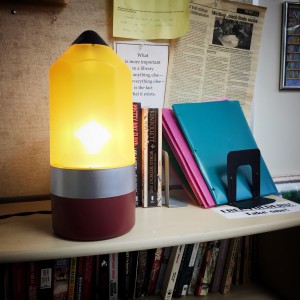 Those unfamiliar with NMC’s Writing and Reading Center, or the concept of writing centers, might conclude – with good reason – that the WRC is about writing and reading. And it is. My introductory spiel to classes always emphasizes that if it’s writing or reading, we’re the place to go. We want to encourage students with writing or reading in a variety contexts to utilize our services, regardless of purpose or scope. We do not restrict what stage the task is in or what the task is for. However, much more happens during WRC sessions than just writing or reading. And those other benefits are often the ones that end up being more long-lasting and beneficial to our students and to our community.
Those unfamiliar with NMC’s Writing and Reading Center, or the concept of writing centers, might conclude – with good reason – that the WRC is about writing and reading. And it is. My introductory spiel to classes always emphasizes that if it’s writing or reading, we’re the place to go. We want to encourage students with writing or reading in a variety contexts to utilize our services, regardless of purpose or scope. We do not restrict what stage the task is in or what the task is for. However, much more happens during WRC sessions than just writing or reading. And those other benefits are often the ones that end up being more long-lasting and beneficial to our students and to our community.
If I were to summarize the power of WRC sessions in one word, it would be this: collaboration. Readers in the WRC work collaboratively with students to give them advice on their current writing project; we ask students to be involved in the process and active participants in crafting their own knowledge. Through this collaboration, our practices help them develop a variety of skill sets and methods to approach not just future writing and reading projects, but all manner of issues and concerns that they might face as both students and citizens.
- Academic Knowledge: While Readers have specific writing skills and knowledge of academic standards, the students are the experts in their specific classes and disciplines.
- Problem Solving: Together, we make meaning of assignments and texts, assisting students in understanding the purpose and goals of a task.
- Strategy Use: We guide students in uncovering the reading and writing strategies they already have. Then we model best practices to help students learn new strategies for increasingly complex reading and writing tasks.
- Available Resources: Throughout our sessions, we show students resources and help them learn how to use the resources already available to them, both at our campus and in the wider community.
- Critical Thinking: We challenge students to think thoughtfully and critically about the contemporary issues they grapple with and push themselves to consider new perspectives and insights.
- Engagement: We empower students to become responsible and engaged, in charge of their own learning and academic experiences.
In many ways we work with the “teach a man to fish” mantra, as we help students access the information and skills they already have and learn how to deal with the tasks, projects, and challenges they may face in the future. Through talking about their writing and reading, we talk about so much more. And while we always hope that we can support students in achieving success in classes, our aim is ultimately to help them achieve success in their lives.

